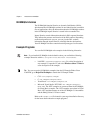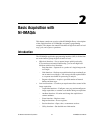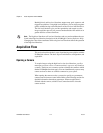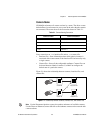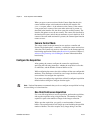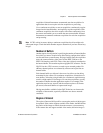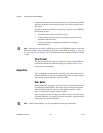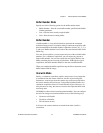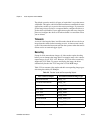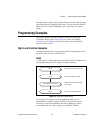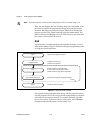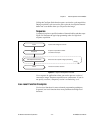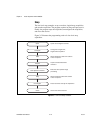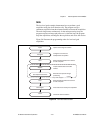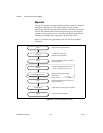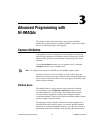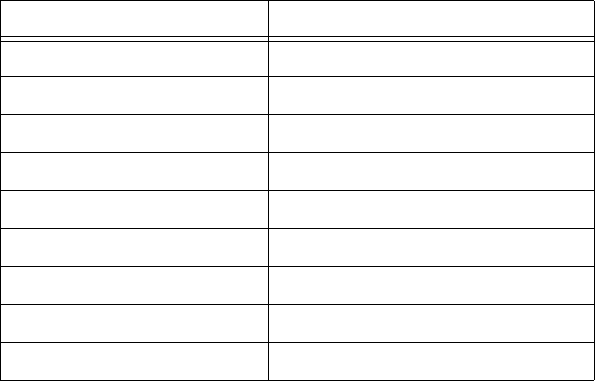
Chapter 2 Basic Acquisition with NI-IMAQdx
NI-IMAQdx User Manual 2-8 ni.com
The default overwrite mode for all types of acquisition is to get the newest
valid buffer. This option, which National Instruments recommends for most
applications, enables you to process the most recent image. If you need to
get the image closest in time to a requested buffer, configure the driver to
get the oldest valid buffer. If your application requires that every image be
processed, configure the driver to fail when a buffer is overwritten so that
you are alerted.
Timeouts
A timeout is the length of time, in milliseconds, that the driver waits for an
image from the camera before returning an error. A timeout error usually
occurs if the camera has been removed from the system or when the camera
did not receive an external trigger signal.
Decoding
Except for 8-bit monochrome images, all video modes require decoding
before you can interpret the image data. For example, many color cameras
output images of type YUV 4:2:2. However, NI Vision does not natively
support the YUV mode. To process and display the image, the driver
automatically decodes the YUV image into a 32-bit RGB image.
Table 2-2 lists common video modes and their corresponding image types
after being decoded by NI-IMAQdx.
Table 2-2. Decoder Inputs and Corresponding Outputs
Raw Camera Output Decoded Destination Image Type
8-bit monochrome Image_U8
10–16-bit monochrome Image_I16
YUV 4:1:1 Image_RGB
YUV 4:2:2 Image_RGB
YUV 4:4:4 Image_RGB
24-bit RGB Image_RGB
30–48-bit RGB Image_RGB_U64
8-bit Bayer Image_RGB
10–16-bit Bayer Image_RGB



